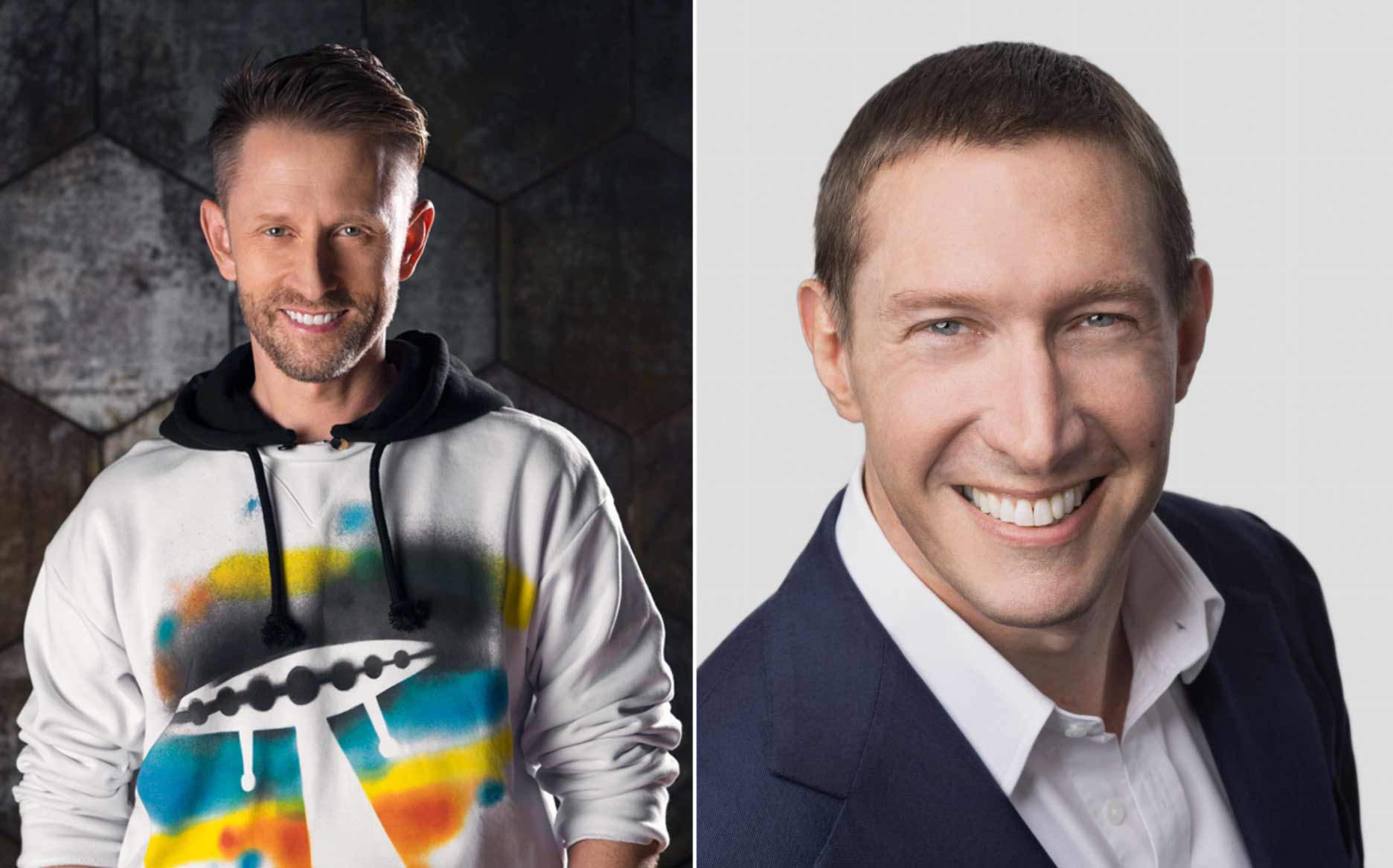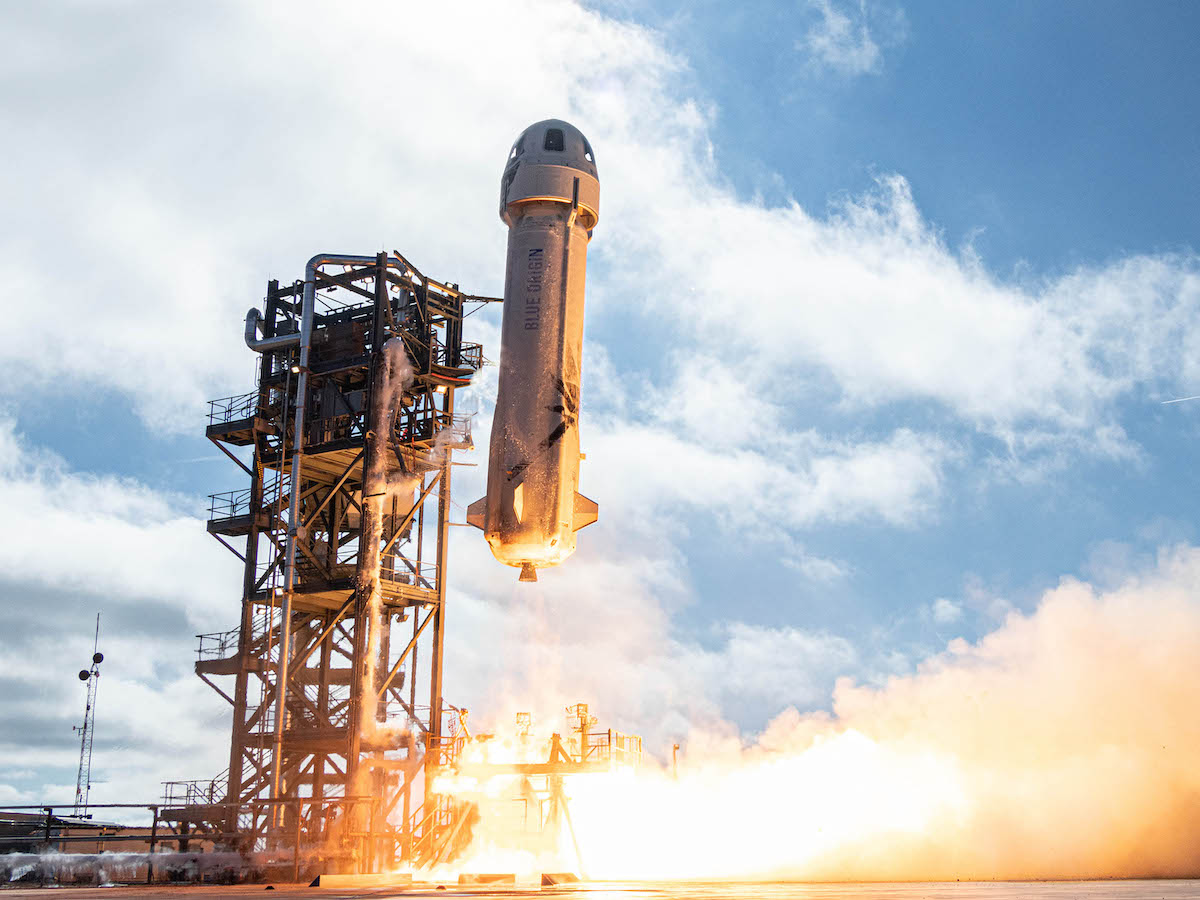
The co-founders of the satellite remote sensing company Planet Labs and the clinical research software firm Medidata, both wealthy entrepreneurs, are two of the four passengers slated to launch to the edge of space next month on Blue Origin’s next suborbital flight.
Blue Origin, the space company founded by billionaire Jeff Bezos, announced the identities of the first two passengers Monday.
In a statement, Blue Origin said Chris Boshuizen and Glen de Vries will fly to space on the company’s New Shepard rocket. Both participated earlier this year in a Blue Origin auction, but did not win a seat on the company’s first human flight in July.
The upcoming mission — designated New Shepard-18, or NS-18 — is scheduled for launch Oct. 12 from Blue Origin’s sprawling desert test site in West Texas.
The launch window opens at 8:30 a.m. CDT (9:30 a.m. EDT; 1330 GMT). Blue Origin’s reusable launch vehicle and spacecraft can reach altitudes just above 62 miles (100 kilometers), the internationally-recognized boundary of space.
Blue Origin did not disclose who will take the other two seats on the New Shepard crew module. TMZ reported last week that actor William Shatner is slated to fly on Blue Origin’s next suborbital flight. At 90 years old, Shatner would become the oldest person to reach space.
“The two other astronauts will be announced in the coming days,” Blue Origin said Monday.
Boshuizen, who is from Australia, co-founded Planet Labs, now known as Planet, in 2010 and served as the San Francisco-based company’s chief technology officer for five years. Planet builds small spacecraft and operates a fleet of more than 100 Earth-imaging satellites to collect daily remote sensing imagery.
Before his work with Planet, Boshuizen was a space mission architect at NASA’s Ames Research Center, where he helped pioneer NASA’s CubeSat program. He is now a partner at DCVC, a Silicon Valley venture capital firm.
Boshuizen earned a bachelor of science degree and a PhD in physics from the University of Sydney.
“This is a fulfillment of my greatest childhood dream,” Boshuizen said in a statement. “More importantly, though, I see this flight as an opportunity to inspire students to pursue careers in STEM and catalyze the next generation of space explorers. After all, our future of life in space is in their very capable hands.”
De Vries co-founded Medidata Solutions in 1999, a software company widely used in clinical trials. He is now vice chair of life science sand heath care at Dassault Systèmes, which acquired Medidata for $5.8 billion in 2019. Blue Origin said de Vries is also a trustee of Carnegie Mellon University, an author, and a private pilot.
In a statement, de Vries said the opportunity to fly to space is a “dream come true.”
“I’ve spent my entire career working to extend people’s lives,” de Vries said in a statement. “However, with limited materials and energy on Earth, extending our reach into space can help humanity continue to thrive. Furthermore, astronauts can experience the ‘overview effect,’ gaining a new perspective on how fragile and precious our planet, those resources, and our civilization are. Playing a part in advancing the space industry and one day making those resources and that understanding available to everyone, is an incredible opportunity.”

The launch next month will mark the 18th flight of Blue Origin’s hydrogen-fueled New Shepard rocket, and the second carry human passengers.
A suborbital flight July 20 flew to space with Blue Origin founder Jeff Bezos, his brother Mark Bezos, 82-year-old aviation pioneer Wally Funk, and Dutch teenager Oliver Daemen.
Blue Origin’s suborbital system gives passengers several minutes of weightlessness, allowing them to unstrap from their seats and float around the crew capsule’s pressurized cabin. The passengers take their seats again for the descent back to Earth, culminating in a landing on the desert floor under three main parachutes.
The company’s main competitor in the suborbital tourism market is Virgin Galactic, Richard Branson’s space company. Branson and five Virgin Galactic employees flew to the edge of space on the SpaceShipTwo rocket plane July 11 over New Mexico.
The craft safely landed on a runway, but deviated from its approved flight corridor, according to the Federal Aviation Administration. The FAA has grounded Virgin Galactic’s rocket plane until it completes an investigation into the flight.
Email the author.
Follow Stephen Clark on Twitter: @StephenClark1.
